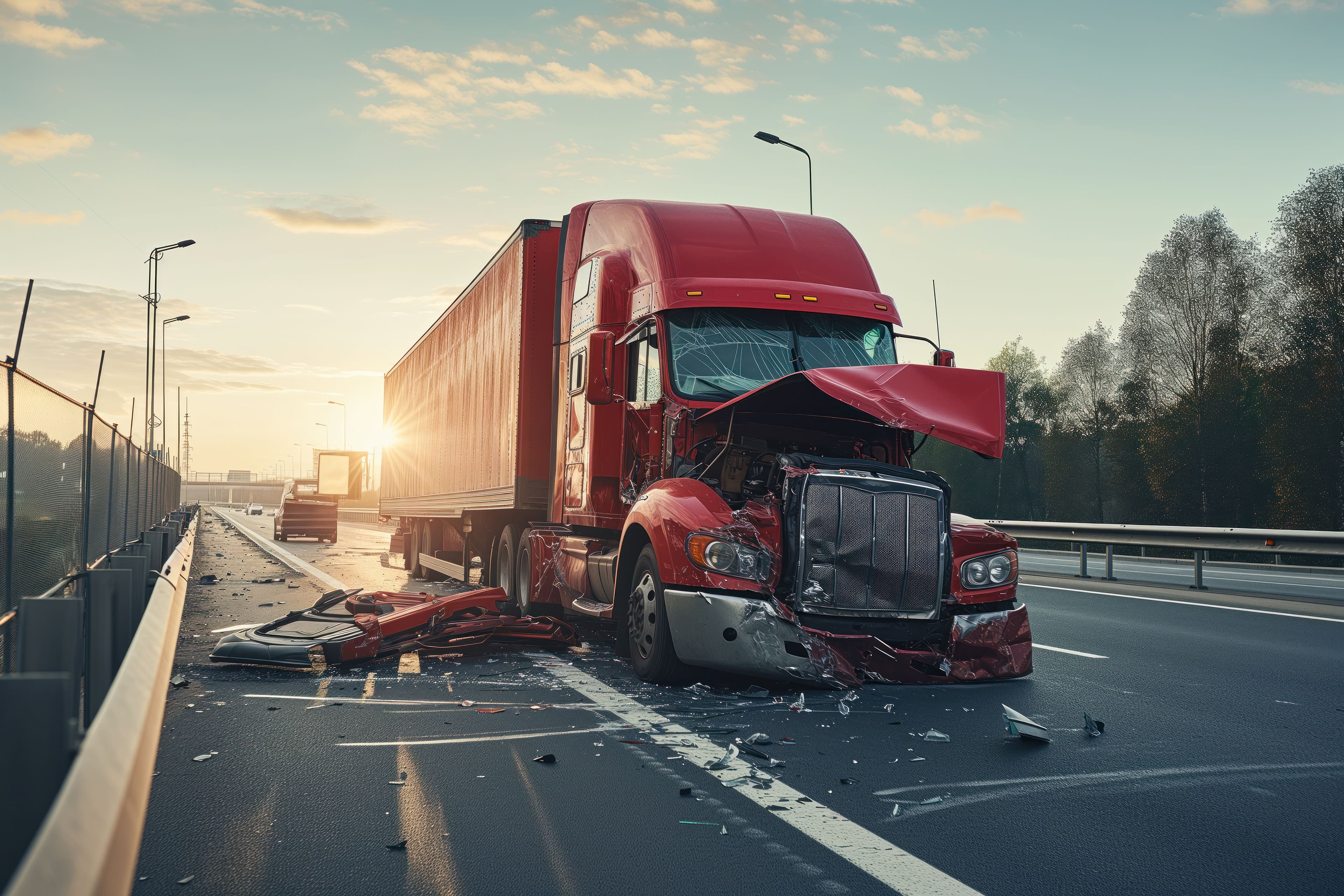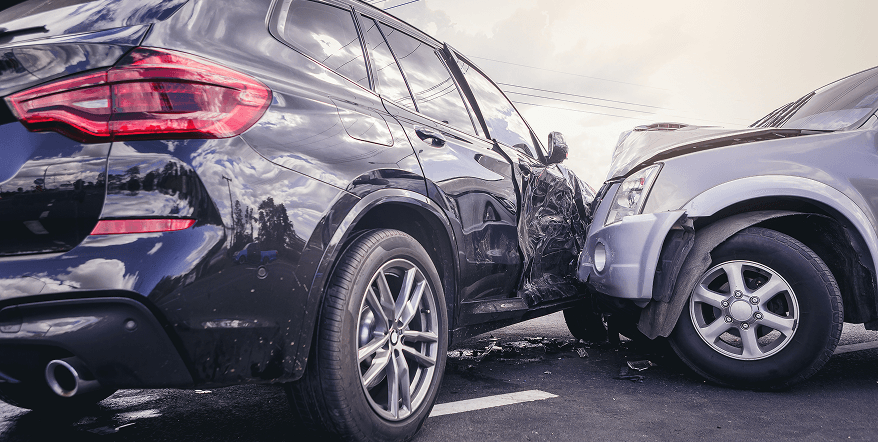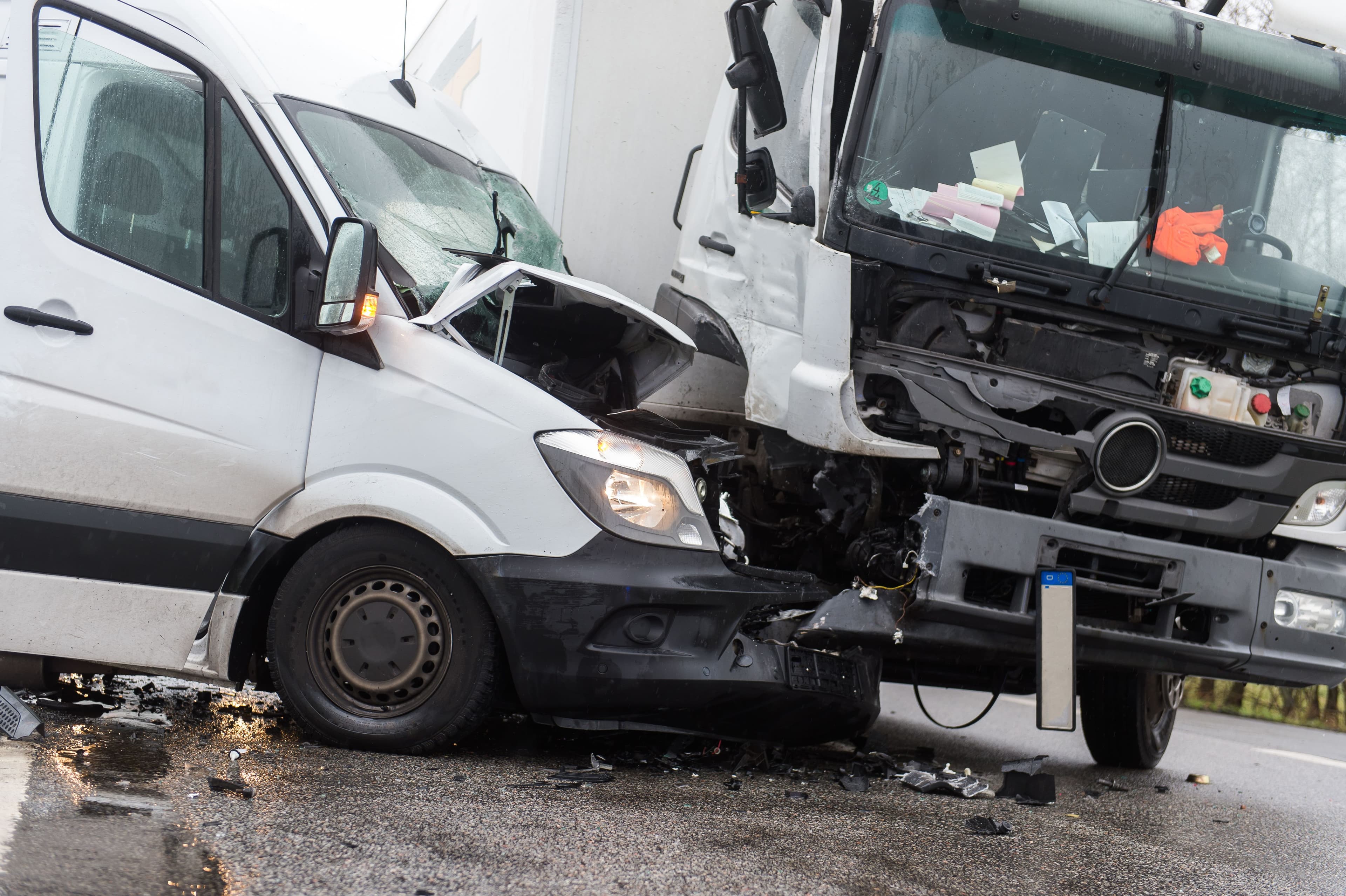In Pennsylvania, proving liability in a truck accident claim typically involves demonstrating that negligence by either the driver, the trucking company, or a third-party, was responsible for causing the accident. That might involve reviewing driving logs, company policies, or past violations.
Since these claims usually involve more evidence and more people, they don’t move quickly. Understanding how fault is determined early on can help you avoid problems when dealing with insurers or preparing a case.
In this article by experienced West Chester truck accident attorney Tyler Wilk, we discuss negligence, proving fault, vicarious liability, and more.
Negligence in Pennsylvania Semi‑Truck Accidents
Before you can hold anyone legally responsible after a truck wreck, you need to show they were negligent. That means they didn’t take the care the law expects of them—and someone got hurt as a result.
The Four Parts of a Negligence Claim
Pennsylvania law breaks this down into four pieces:
- Duty: The driver or company had a legal responsibility to act with care.
- Breach: They failed to meet that responsibility.
- Causation: Their actions (or failure to act) directly led to the crash.
- Damages: Someone suffered losses because of it.
You need all four for a successful claim. If one is missing, the case may not go anywhere.
Shared Fault Can Change the Outcome
Pennsylvania uses a rule called modified comparative negligence. If you were partly at fault, you can still recover compensation—as long as your share of the blame isn’t more than 50%. But whatever portion of fault is assigned to you gets taken out of your total recovery.
For example, if you were found 30% at fault, your compensation would be reduced by that much. Go over 50%, and you lose the right to collect anything.
That’s why it’s important to gather clear evidence early. Fault isn’t always straightforward, and even small details can affect how much you’re able to recover.
Steps To Prove Negligence
If you’re trying to hold a trucking company accountable, the steps you take early on will shape your entire case. Proving negligence in a Pennsylvania truck accident isn’t just about pointing fingers—it’s about getting the right evidence and preserving it before it disappears. Here’s what to do:
1. Lock Down the ELD and Black Box Data
Most commercial trucks record speed, brake usage, and how long the driver had been behind the wheel. That data lives in the vehicle’s black box and the electronic logging device (ELD). If you don’t act fast, the company may delete or overwrite it. Once preserved, those logs can help confirm whether the driver was fatigued or failed to brake when they should have.
2. Review the Driver’s Hiring and Training File
Every trucking company is required to keep a file for each driver. That includes their application, safety record, training, drug testing, and any disciplinary history. If the company skipped background checks, ignored red flags, or never provided proper instruction, you may have a claim against the company itself—not just the driver.
3. Document the Scene Before It’s Gone
Photos, video, and debris mapping can help piece together how the crash unfolded. Skid marks, the resting position of the vehicles, and visible road hazards all matter. The same goes for witness statements. Once the cleanup is done, most of that evidence is gone for good, so it needs to be gathered quickly.
4. Pull the Truck’s Maintenance History
Poor maintenance can point to company negligence. If brakes failed or a tire blew out, checking the repair logs may show whether the issue was known—or should’ve been caught earlier. Missed inspections and neglected repairs can shift liability upstream.
5. Inspect Cargo Loading and Weight Records
Overloaded or uneven cargo affects braking and control. If the trailer was packed incorrectly, or if it exceeded legal weight limits, that may have played a role in the crash. Reviewing loading records can expose violations that help build your case.
How Vicarious Liability Impacts Pennsylvania Truck Accident Claims
Understanding who’s legally responsible after a truck accident isn’t always simple. In many cases, the trucking company—not just the driver—can be held liable. This is where the concept of vicarious liability comes in. But depending on how the driver was classified and what they were doing at the time of the crash, this doctrine doesn’t always apply.
What Is Vicarious Liability?
Vicarious liability holds an employer responsible for harm caused by an employee acting within the scope of their job. If a truck driver causes a crash while hauling cargo or making a delivery, the company they work for is usually liable for any resulting injuries or damage.
The law recognizes that employers benefit from their workers’ labor, and with that comes responsibility for harm done during the course of that work.
When Vicarious Liability Might Not Apply
Not every driver on the road is an employee. Some are classified as independent contractors. If that’s the case, the trucking company may argue it isn’t responsible. Still, courts can look past labels. If the company controlled when, where, and how the driver worked, it may still be held liable.
Vicarious liability also doesn’t apply if the driver caused the accident while doing something personal—like using the truck to run an errand. In those situations, the company can argue the driver wasn’t acting on its behalf.
There are also cases where a third party is at fault. For example, if another vehicle triggered a chain reaction crash, the trucking company might try to shift responsibility.
Direct Negligence Is Different
A company can also be liable based on its own actions. That’s known as direct negligence. Examples include failing to maintain its vehicles, hiring unqualified drivers, or ignoring safety violations. These failures don’t depend on what the driver was doing—they stem from decisions made at the top.
Why These Distinctions Matter
Disputes over liability can slow down a claim. Whether the company denies responsibility altogether or tries to point the finger elsewhere, these tactics are common. A lawyer who knows how to navigate these arguments can help keep your case on track.
Examples of Negligence
Below are specific examples of what negligence may look like:
Driver Negligence
Although drivers often follow policies set by their employer, they can still be individually negligent.
Examples include:
- Driving while overly fatigued
- Driving recklessly
Trucking Company Negligence
This kind of negligence can lead to a crash just as easily as anything a driver does behind the wheel:
- Failing to inspect or maintain the vehicle
- Hiring unqualified or inexperienced drivers
- Not conducting required background checks
- Ignoring prior safety violations
- Pressuring drivers to meet unrealistic delivery schedules
- Failing to enforce hours-of-service rules
- Not providing proper training
- Neglecting to supervise or monitor driver behavior
- Overloading the vehicle
- Improperly securing cargo
- Allowing unsafe trucks to stay in service
- Delaying necessary repairs
- Falsifying maintenance or inspection records
- Using defective equipment knowingly
- Failing to enforce safety protocols
- Skipping routine safety audits
- Cutting costs on safety to maximize profit
Why These Examples Matter
When you’re building a truck accident claim, the specific type of negligence shapes how liability is assigned. Direct negligence points to the company’s decisions, while individual negligence highlights the driver’s conduct.
In either case, identifying the exact failures involved helps strengthen your claim and makes it harder for the other side to avoid responsibility.
Knowledgeable Pennsylvania Truck Accident Lawyers Near Me
Truck accident cases aren’t like ordinary car crashes. They involve complex state and federal regulations, multiple parties, and large insurance carriers who know how to fight these claims. Without legal guidance, it’s easy to lose access to key evidence or agree to a settlement that doesn’t reflect what you’ve lost.
That’s why working with attorney Tyler Wilk early on can make a real difference in how your case plays out.
At Wilk Law Personal Injury & Car Accident Lawyers, we move fast to protect your rights. From the start, we secure black box data, driver logs, and training records before they’re erased or withheld.
We gather maintenance files, analyze safety violations, and investigate whether the company followed the rules—or cut corners. Our team also handles all contact with insurers so you don’t have to deal with pressure or confusion during recovery.
Contact us today for a free consultation If you’ve been injured in a truck crash. We are ready to help.
Locations where our skilled attorneys have helped victims of semi-truck accident injuries in Pennsylvania include West Chester, Philadelphia, Reading, Pottstown, Downingtown, Coatesville, Valley Forge, Exton, and more.
Related Articles
What does a Pennsylvania truck accident attorney do?




